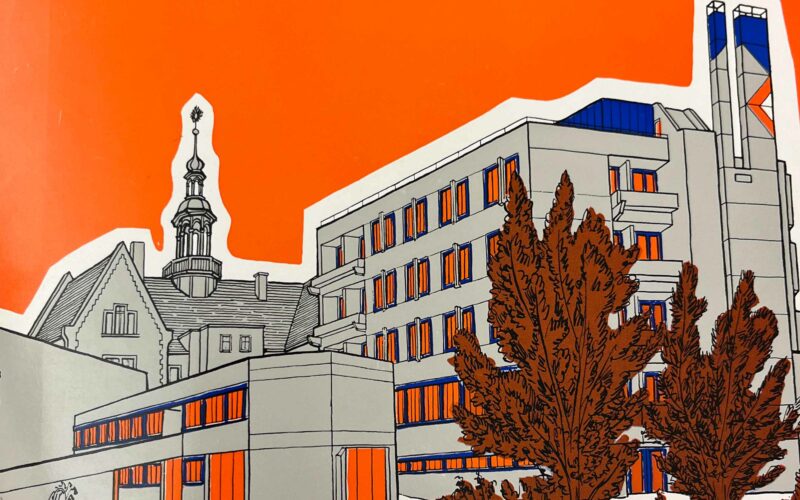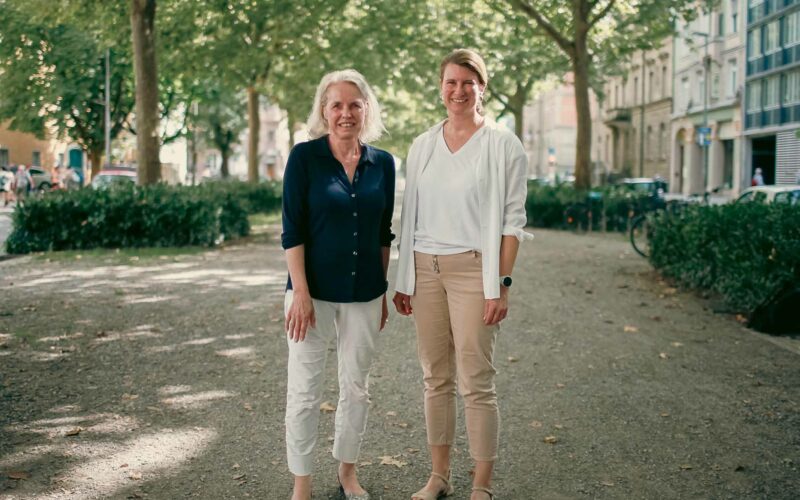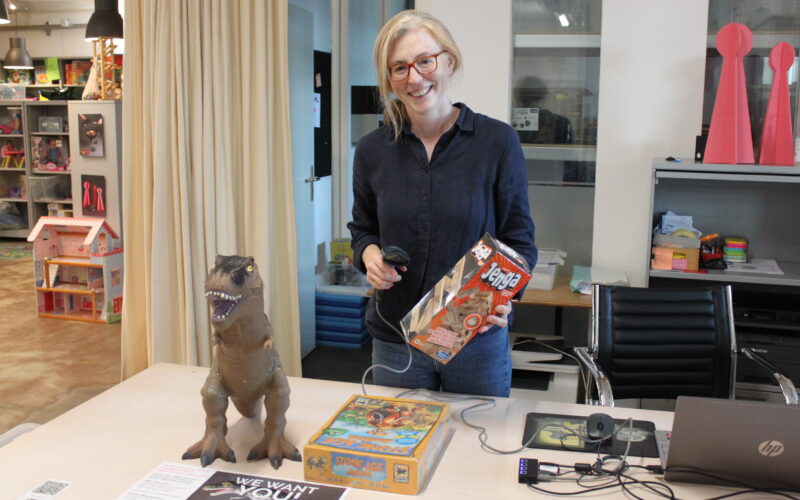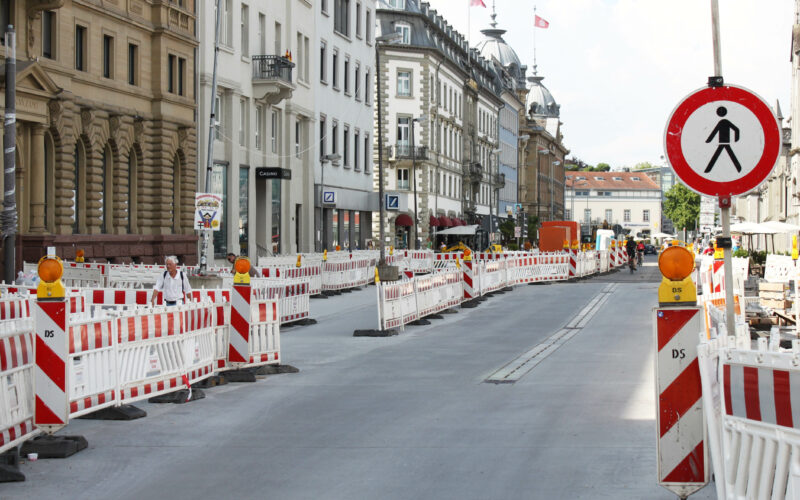- Despite 29.7% of the population having a migration background, only 13% are represented in local offices, while women hold 39% of the positions in large cities.
- The majority of local politicians have an academic degree, which does not reflect the overall population.
- Locally in Konstanz, political representation does not mirror the population’s diversity. Despite a foreigner percentage of 17.5%, there is a lack of corresponding representation in politics.
- Discussions about more diversity in politics emphasize the need for representatives from diverse groups to directly bring in their specific concerns.
- The upcoming city council election shows an increase in female candidates in some parties, a slow step towards greater diversity.
Diversity is everywhere: in our circle of friends, at work, or during a walk through the city1. We meet people who speak different languages, have different physical abilities, sexual or gender identities, ages, or skin colors. These differences lead us to see the world from various perspectives.
They influence how we are treated and the opportunities we have in areas like work, housing, or medical care. We face different challenges and may experience advantages, privileges, or disadvantages and discrimination. At the same time, these differences bring various perspectives on issues and situations. We can complement, contradict, or inspire each other.2

Representative democracy: a question of diversity?
In Germany, 29.7% of the population has an international background. Although the proportion of deputies with an international background has risen significantly since 1990, there is still a massive representation gap. At the end of 2021, for example, only 11.3% of all Bundestag members had an international background. Even at the local level, the diversity of the German population is not visible in offices, according to a study by the University of Duisburg-Essen (UDE).
„A diverse society needs diverse representation.“
says Professor Andreas Blätte from the Institute of Political Science at the University of Duisburg Essen (UDE).
Although women make up half of the population, they only hold 39% of the offices in large cities. Even more striking is the low representation of people with an international background. They hold only 13% of the offices in the municipalities studied, despite making up 30% of the population. The study also shows that the majority of local politicians have an academic degree, which does not reflect the overall population.
Do the parliaments at federal, state, or local levels meet the demands of representative democracy? Shouldn’t the proportion of people with an international background in political offices be much higher?
Representative democracy in Germany is a fundamental part of the political system. It is based on the principle of indirect participation. Here are the key points summarized:
Electoral System: In elections, citizens elect political representatives who represent them in parliament or other political bodies. In Germany, elections occur at various levels, including federal, state, and local elections.
Party Landscape: Germany’s political landscape is characterized by a variety of parties representing different political programs and ideologies. Voters choose candidates from parties that best reflect their political beliefs.
City Councils: At the local level, city councils are elected through direct elections. These councils are responsible for administration and decision-making at the local level. They represent the interests of the citizens of their community.
Interest Representation: Members of city councils are supposed to represent the diverse interests and concerns of citizens, including topics like education, health, urban development, environmental protection, and social issues.
Participation and Control: Representative democracy should enable citizens to participate in political decisions by electing representatives for their concerns. At the same time, they can control their representatives by evaluating their performance and voting them out if necessary.
A Local Inventory

Looking at Konstanz, 17.5% of the 87,355 residents were „foreigners“ in 2022. Do they feel well represented in local politics by the current officeholders or the policies they implement? Politicians should (and must) advocate for the diverse concerns of their various constituents. But it takes more than just advocating for others’ concerns or speaking on their behalf.
It requires people with international backgrounds, people with disabilities, women, and FLINTA* persons to speak for themselves and their groups‘ concerns. It is not enough to implement political decisions that improve the situation of people with international backgrounds. It requires people with international backgrounds to speak for themselves in politics. It requires the perspectives of „the others.“ The perspectives of those who are often underrepresented. Notably, there are no figures on the proportion of non-binary people in Konstanz’s local politics.
Let’s take a look at how women are represented in the Konstanz city council. Our former co-editor-in-chief Wiebke Wetschera noted last year: there is room for improvement. In her article “More Women in Local Politics! But How?”, she wrote that out of 40 council members, only 15 are women. That’s 37.5%.
In the FDP, there is currently no woman in office, and only one woman each in the CDU and the Free Voters. But why „only“? Shouldn’t we be glad that there are „at least“ 15 women? Discriminatory practices in the discussion culture or treatment of council members show that respect is still lacking. Nevertheless, the few women in the council are paving the way. They network across party lines to bring more women into local politics.
Questions of representation also concern language. To be as inclusive as possible, we use terms like FLINTA*. This term stands for women, lesbians, intersex, non-binary, trans, and agender persons.
Trust, Prejudice and Representation
When people in a society feel represented by their political representatives, it increases their trust in the political system. For example, if women feel adequately represented in politics, it enhances their willingness to engage politically.
Seeing representatives from their own ethnic or gender group in political offices can reduce prejudices and create a more inclusive society. Political decisions may become fairer and more balanced with new perspectives. The needs, challenges, or wishes of minorities can be addressed more quickly if the respective politicians are personally affected or better understand the circumstances.
What is Diversity?
Diversity refers not only to origin or gender. In sociology, diversity is a concept that deals with the distinction and recognition of group and individual characteristics. It differentiates between traits closely linked to a person’s identity, such as origin, gender, sexual or gender identity, age, religion, and disabilities. Other characteristics include marital status or employment status: unemployed, temporarily employed, or permanently employed or civil servants.
The idea that offices in parliaments, administration, or leadership positions should be diverse is not just a nice wish. Diversity is even enshrined in several laws, such as the AGG (General Equal Treatment Act). This law contains 33 paragraphs designed to protect all people from being disadvantaged “based on their age, gender, chronic illness or disability, religion, sexual identity, or for racist and anti-Semitic reasons.” The AGG also clarifies that people are entitled to compensation or damages in cases of discrimination.
Reason for Hope?
Looking at the lists of factions running in the city council election on June 9, 2024, you can see that the highest proportion of women is on the joint list of FGL and Grüne KV Konstanz – with 23 women, that’s 57.5%. The SPD hits the exact middle, alternating between a woman and a man, bringing them to 20 women, or 50%.
Third place goes to the Junge Forum Konstanz. Although their top three candidates are women, with a total of 17 women on the list, they don’t quite reach half of their candidates. The FDP follows closely with 16 women on their list, the largest increase compared to the last election.
Even the CDU has changed its gender distribution. This year, two more women are running, totaling 15. The same number of women can also be found on the LLK and Linke lists. The Free Voters, once again, have the lowest proportion of women, with only 11 out of 40 candidates being women – at least six of them are in the top 20 spots.
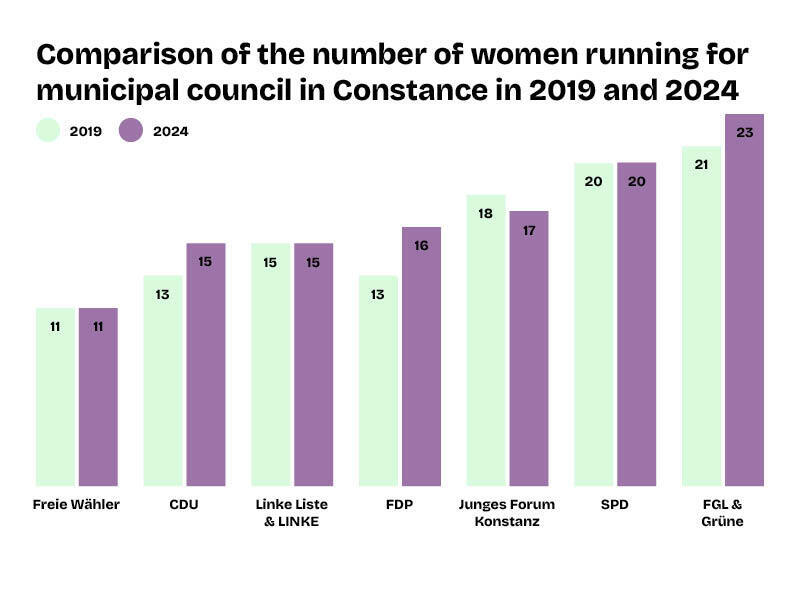
How Can Parties or Parliaments Become More Diverse?
Political parties can start by making their selection of candidates more diverse. Additionally, citizens can be given equal access to political participation, such as programs for political education and awareness or organizational support for potential candidates.
Targeted measures to promote the equality of women and minority groups can also have a significant impact in politics and society. In Konstanz, for example, it was decided that city council meetings will end at 9 PM to ease conditions for people with children or single parents. More on this can be found in Wiebke’s article.
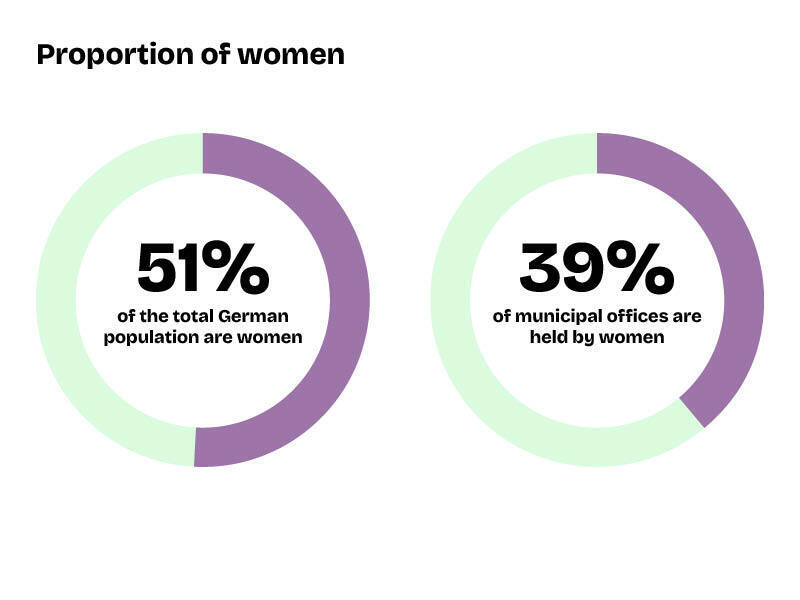
The Good News
Efforts to increase diversity in politics are showing initial success. This year, the FDP’s list includes three more women. The lists of FGL & Grüne KV and CDU have two more women each than in 2019. The Linke Liste and the Free Voters have the same number of women, while the Junge Forum Konstanz has one less, with 17 instead of 18 women. In total, there are 117 women interested in local politics this year, making up 42% of all candidates. A slow but visible move towards a diversity that is already evident in our society.
- Transparency note: This article was translated into English with the help of ChatGPT.
↩︎ - Author’s note: This also includes racialized people. Racialization (derived from „race“) refers to a process and a structure in which people are categorized, stereotyped and hierarchized according to racist characteristics (appearance, ways of life or imaginary characteristics). In this process, racialized knowledge is created and the structure is based on this knowledge. The term emphasizes the character of „race“ as a social construct.
↩︎
Du willst mehr karla?
Werde jetzt Mitglied auf Steady und gestalte mit uns neuen Lokaljournalismus für Konstanz.
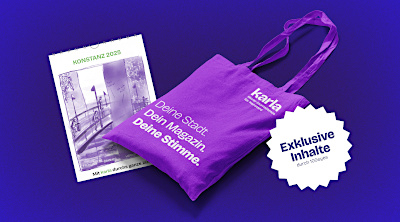
Oder unterstütze uns mit einer Spende über Paypal.![]()

